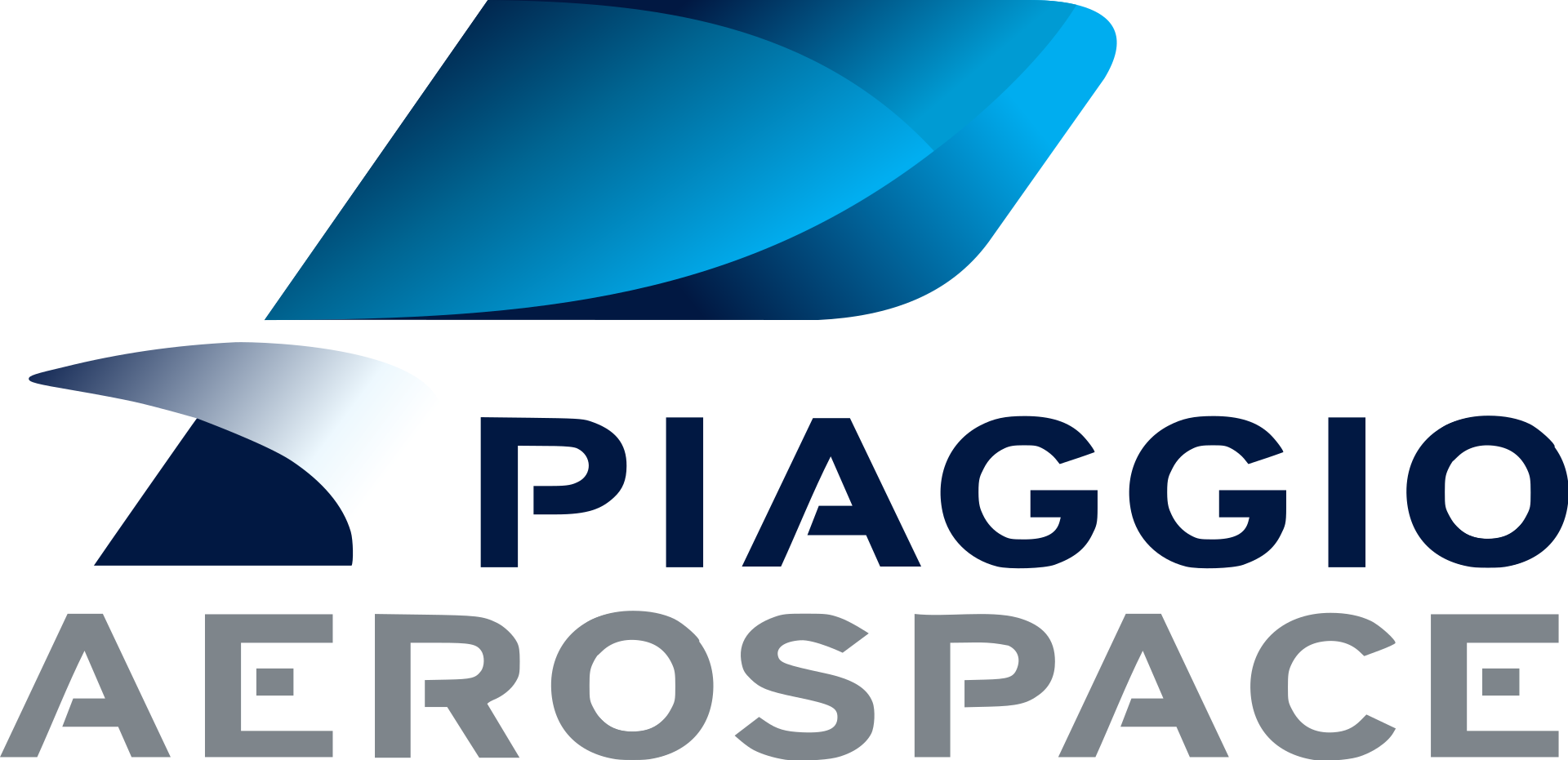Beech Aircraft
Model 2000 Starship
|
|||||||||||||||
|
|
|
|---|
.
History Beech Aircraft Corporation
Beechcraft Model 2000 Starship
First flight February 15, 1986
Produced 1983–1995
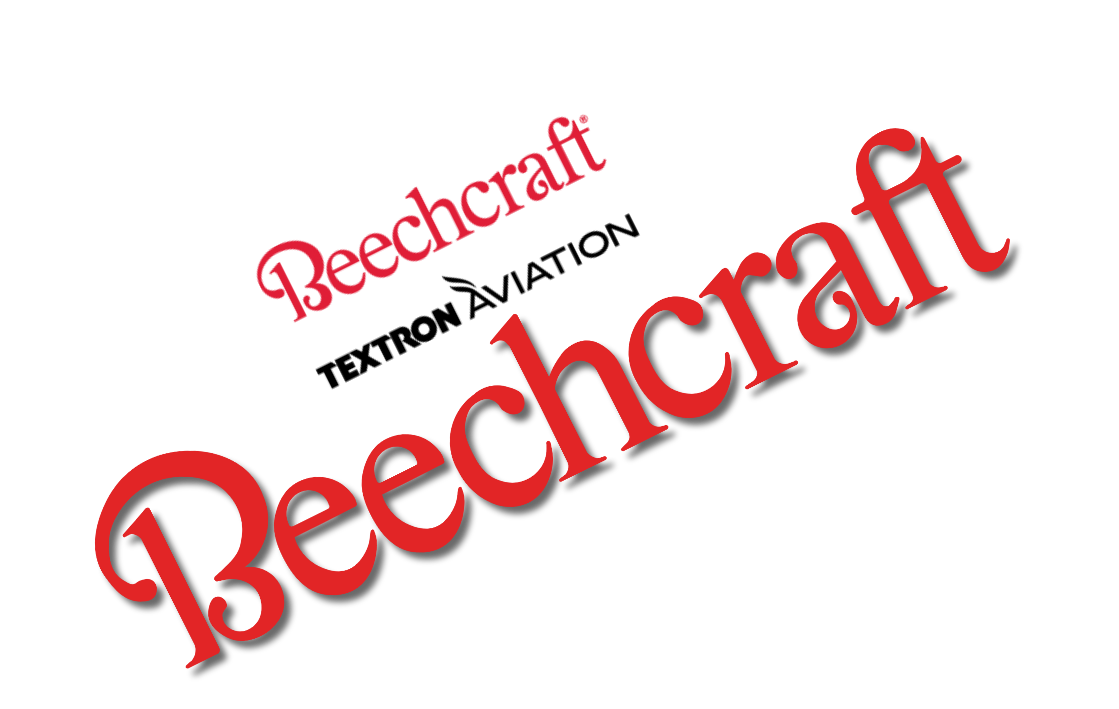
The Beechcraft Starship is a twin-turboprop six- to eight-passenger pressurized business aircraft produced by Beech Aircraft Corporation. Notable for its unusual canard design and extensive use of carbon fiber composite, it did not sell many units and production ceased in 1995, only six years after the Starship's first flight.
Design
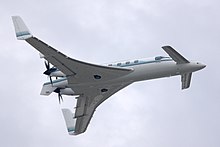
The Starship is noteworthy for its unconventional carbon fiber composite airframe, canard design, lack of centrally located vertical tail, and pusher engine/propeller configuration. The aircraft employs a variable-sweep canard surface in order to counteract the nose-down pitch from extending the flaps.
Carbon fiber composite was used to varying degrees on military aircraft, but at the time the Starship was certified, no civilian aircraft certified by the U.S. Federal Aviation Administration had ever used it so extensively. Beech chose carbon fiber composite for its durability and high strength-to-weight ratio. According to Beech, the Starship weighs less than it would have if it were built from aluminum. Nonetheless, the empty weight of production aircraft exceeded the target by several thousand pounds.
Beech studied several configurations before settling on a canard configuration in early 1980. As configured, the Starship is difficult to stall; the forward surface stalls before the main lifting surface, which allows the nose to drop and more-normal flight to resume.
A traditionally located vertical tail would have transmitted propeller noise into the airframe. In its place, directional stability and control is provided by rudders mounted on the winglets. Because of this addition Beechcraft called the winglets "tipsails".
Photo Gallery
Beech Aircraft Corporation
Beechcraft Model 2000 Starship
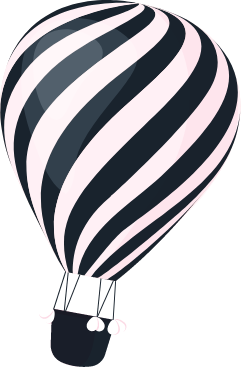
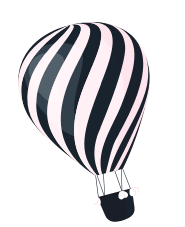
Beech Aircraft Corporation
Beechcraft Model 2000 Starship
General Info
-
-
-
- Crew: 1 or 2
- Capacity: 6
- Length: 46 ft 1 in (14.05 m)
- Wingspan: 54 ft 5.70 in (16.6 m)
- Height: 12 ft 1.3 in (3.94 m)
-
-
Powerplant
-
- Empty weight: (4,574 kg) standard empty weight
- Gross weight: (6,808 kg) max ramp weight
- Max takeoff weight: (6,759 kg)
- Fuel capacity: 565 gallons, or 3785 lbs.
- Powerplant: 2 × Pratt & Whitney Canada PT6A-67A turboprop, 1,200 shp (890 kW) each
Performance
- Maximum speed: 385 mph (620 km/h
- Cruise speed: 353 mph (568 km/h,
- Stall speed: 112 mph (180 km/h, 97 kn) max weight with flaps retracted & idle power
- Minimum control speed: 108 mph (174 km/h, 94 kn) flaps retracted
- Range: 1,742 mi (2,804 km, 1,514 nmi)
- Service ceiling: 41,000 ft (12,500 m)
Links to Youtube & Others
Surviving aircraft
In 2003 Evergreen Air Center sold 8 Starships back to private owners for $50,000 each. Most are being used for parts; however, one of these aircraft has since been made airworthy again. Some former Starship parts have been used on the Epic turboprop kitplane
Beechcraft Aircraft
Model 2000 Starship
The final 2000A configuration had tuning-fork-type noise dampers and improved insulation to reduce cabin noise and redesigned exhaust stacks for more efficient engine airflow.
Youtube Link
As of January 2010, nine Starships held an active registration with the FAA. Three Starships were registered in Oklahoma (NC-29, NC-35 & NC-45), one in Texas (NC-50), one in Colorado (NC-51), and four were registered to Beechcraft in Wichita, Kansas (NC-2, NC-8, NC-19 & NC-24).

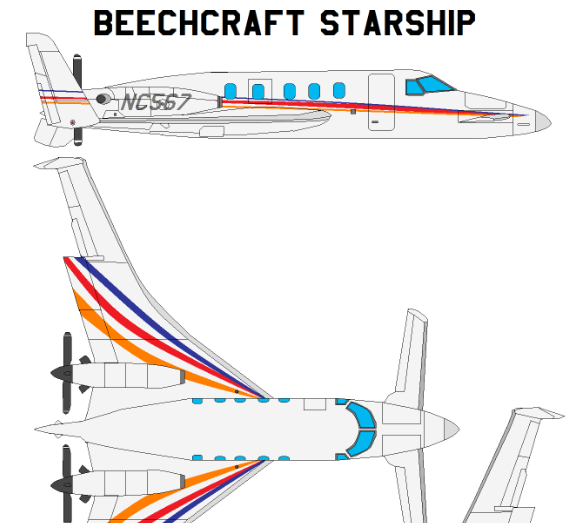


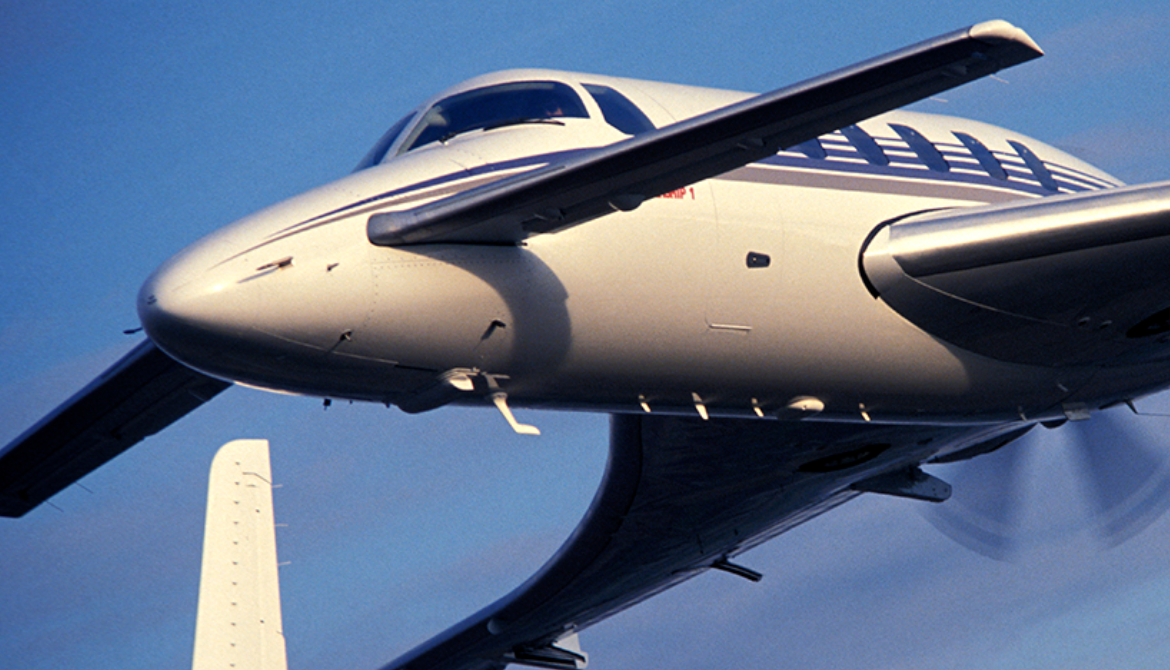
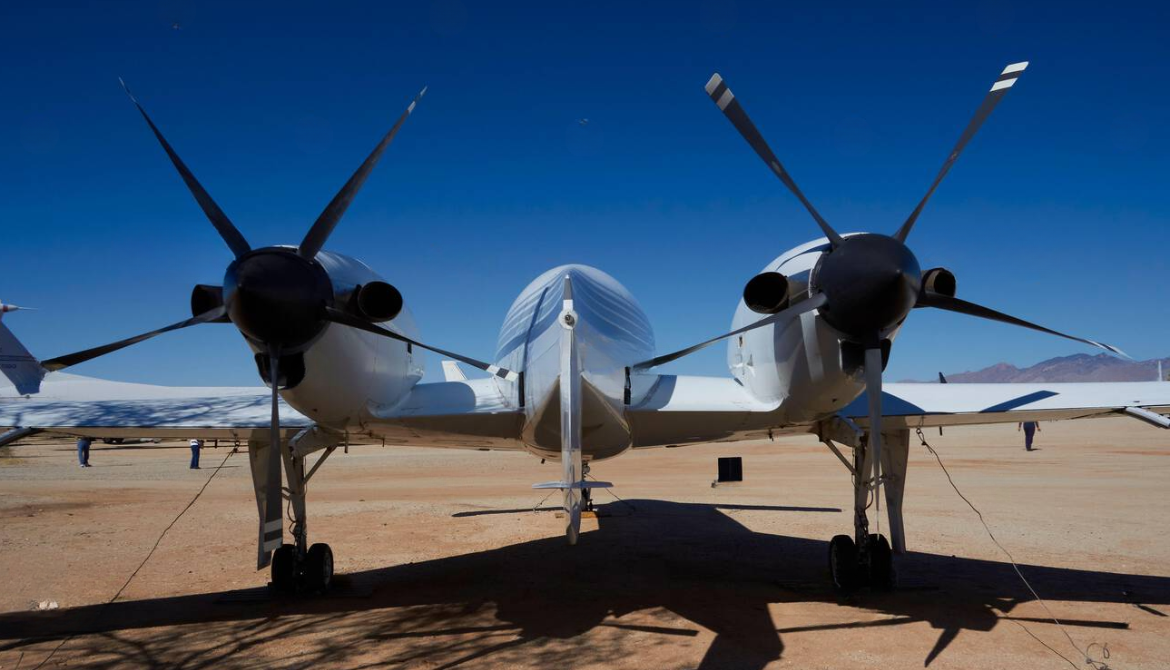
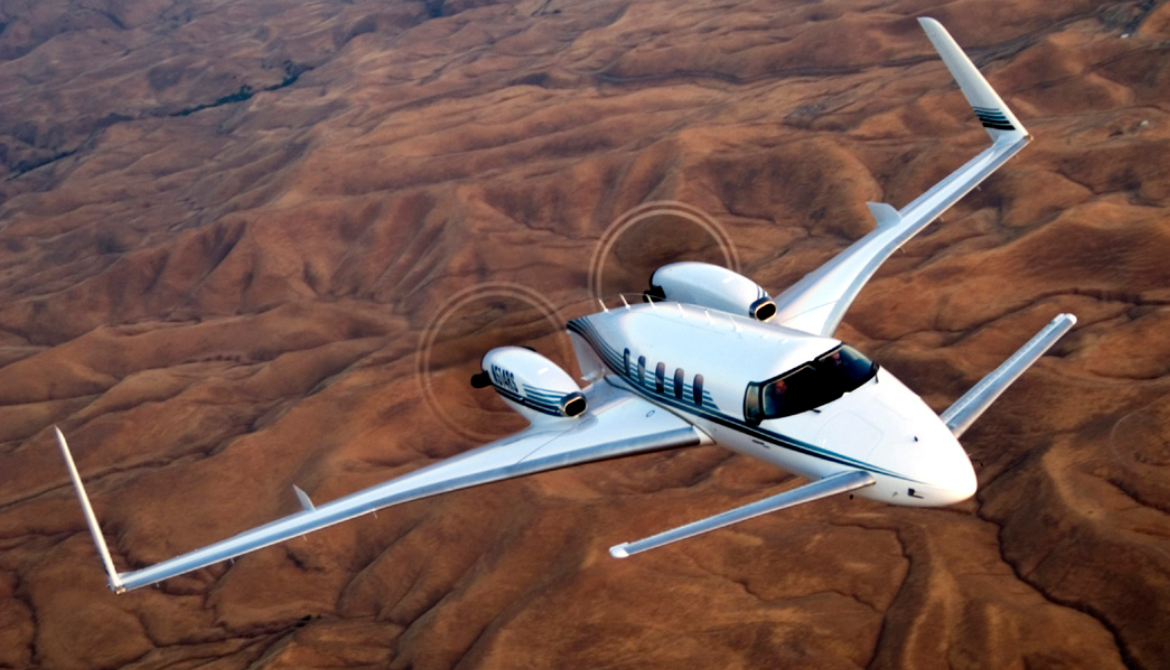
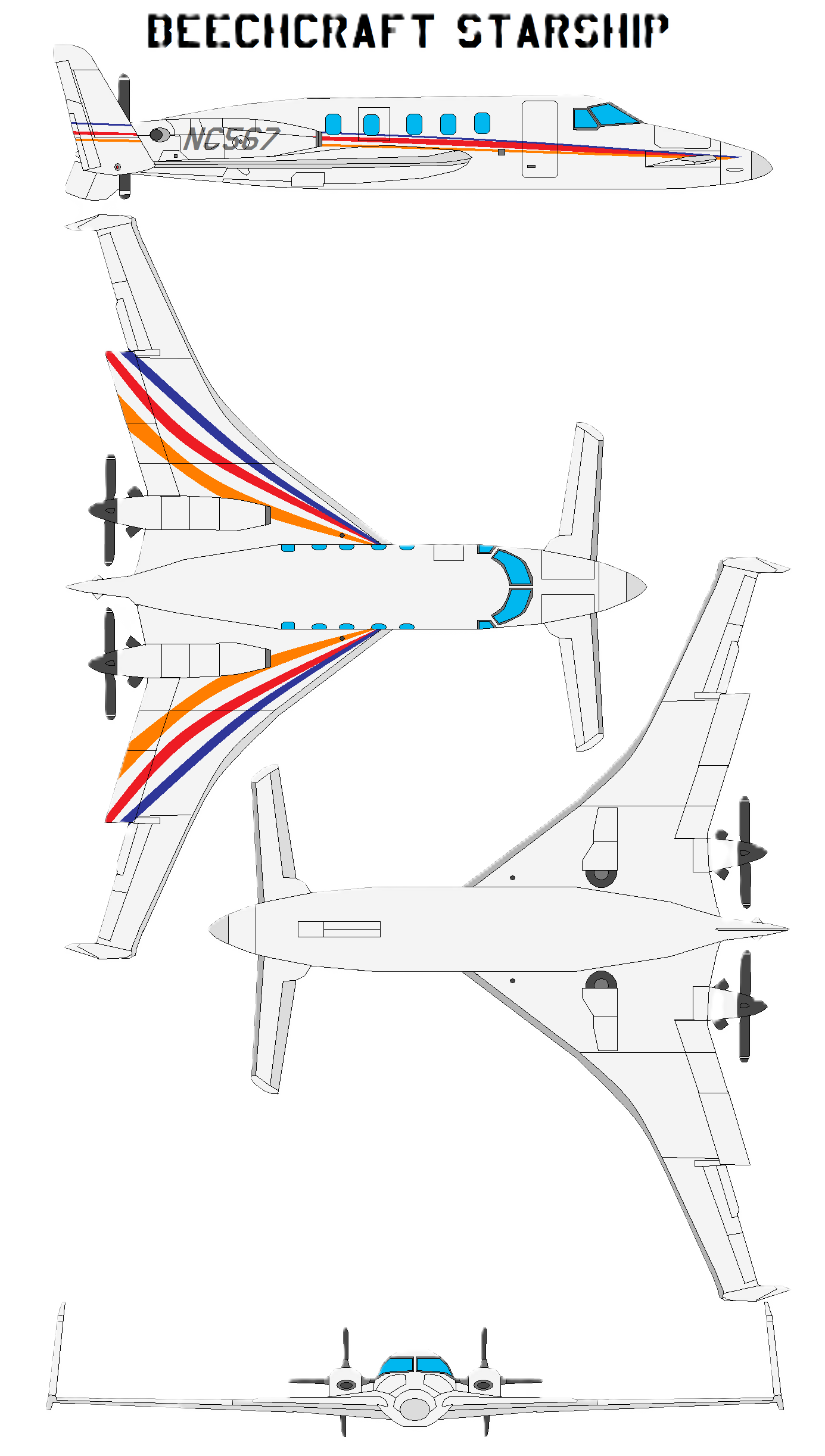
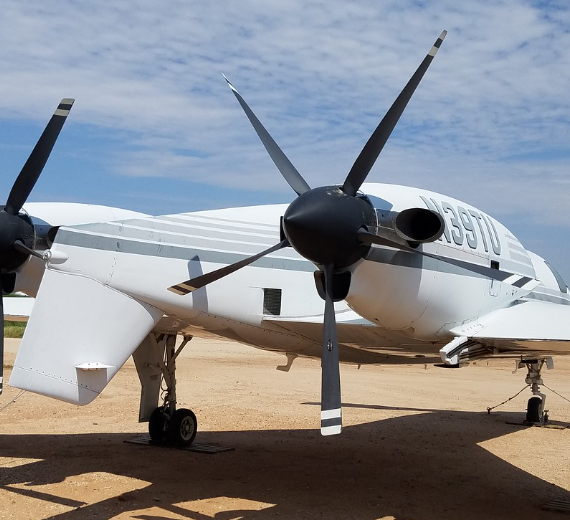
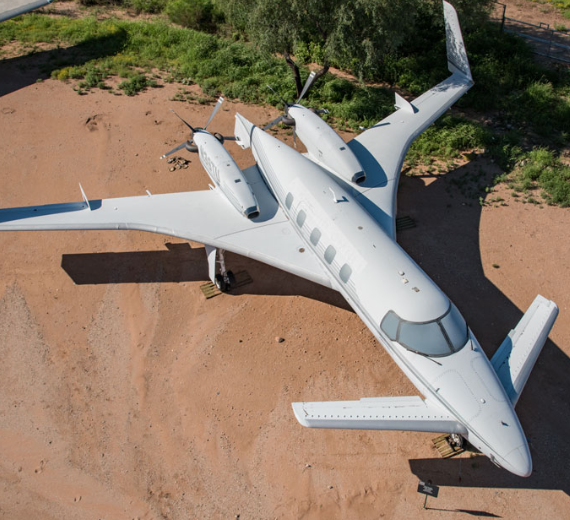

.png)

